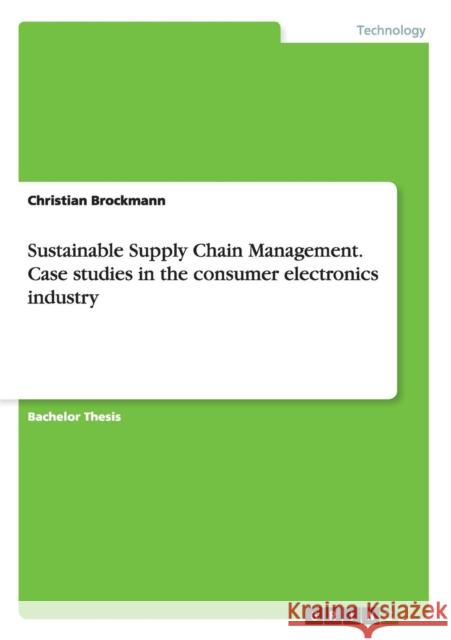Sustainable Supply Chain Management. Case studies in the consumer electronics industry » książka
Sustainable Supply Chain Management. Case studies in the consumer electronics industry
ISBN-13: 9783656942221 / Angielski / Miękka / 2015 / 80 str.
Bachelor Thesis from the year 2014 in the subject Engineering - Industrial Engineering and Management, grade: 1,7, Wilhelm Buchner Hochschule Private Fernhochschule Darmstadt (Fachbereich Ingenieurwissenschaften/Informatik/ Wirtschaftsingenieurwesen und Technologiemanagement), language: English, abstract: The purpose of this thesis is to examine the application of Sustainable Supply Chain Management (SSCM) in the growing industry of consumer electronics. The research intends to look for patterns in respect to the implementation of SSCM programs within selected consumer electronics focused businesses using a case study analysis. The aim of this paper is to investigate which concepts of implementation and design of SSCM are available in the consumer electronics industry and to analyze how they can be classified. The primary sources for the main analysis of this paper are the sustainability reports from the four companies: Dell, Philips, Samsung and Sony. These companies were selected based on their location, size and ranking within the industry and the method of selection is explained herein. Following a first look at the data, a process-oriented approach was chosen for the study, and a careful analysis leads to the formation of a model describing the process of achieving supply chain sustainability in the consumer electronics industry: The 'Sustainability Achievement Process' comprises eight phases: (1) Acknowledgement, (2) Vision and Strategy, (3) Communication, (4) Assessment, (5) Goal Setting, (6) Goal Achievement, (7) Expanding the Reach and (8) Maintaining the Success. The model is refined and substantiated in the subsequent cross-case analysis by illustrating the distinctive features of each phase within each company. Furthermore, the author identifies indicators and keywords for every phase which permit the unambiguous association of statements to levels of sustainability achievement for easy classification. Critical cases are recognized, examin











